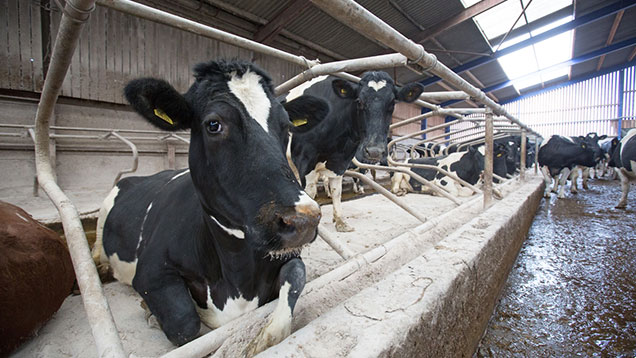Milk quota abolition: Farmers and dairy industry’s reaction
 © Tim Scrivener
© Tim Scrivener The end of milk quotas might be a new dawn for dairy, but reaction in the UK has been somewhat mixed.
Producers in Ireland, Germany and the Netherlands are cheering the demise of restrictions after 30 years, as they hope to tap into growing world demand.
But, in the UK, which hasn’t been over quota for more than 10 years, the mood on 1 April was a blend of buoyant optimism and quiet concern.
See also: What’s changed in dairy since 1984 – the numbers
Here’s how the industry reacted:
NFU dairy board chairman Rob Harrison
“Farmers and dairy processors here do have some concerns about how other EU countries will react to the ending of quotas.
“Some are rapidly increasing their output without an end market for these goods. With milk prices yet to show any strong signs of recovery, this could push farmgate milk prices down further in the EU, and stall any recovery in the dairy markets.
“It’s vital that expansion in any member state is planned in accordance with available market opportunities.”
Farmers’ Union of Wales (FUW) senior policy officer Dr Hazel Wright
“While Britain remains under quota, the potential addition of more production to the EU milk glut has led the FUW to repeatedly express concern about further increases in price volatility in an already saturated marketplace.
“Given such warnings, it is imperative that processors work to prevent the type of boom and bust price volatility which could follow quota abolition.”
Chief executive of Dairy UK Dr Judith Bryans
“Although quotas may have been considered as an appropriate response at the time of their introduction, they also held back the development of a truly efficient and competitive European dairy industry over the past 30 years.
“However, it is now time for the European industry to play a greater role in the global market.”
Irish Farmers’ Association dairy committee chairman Sean O’Leary
“Farmers are undoubtedly excited at the prospect of being able not only to grow their milk production, but also to better run their farms without the counter-productive management impositions quotas had created on them over the years.
“However, we have already for some time operated in a global market, increasingly influenced by weather factors, economic shocks and geopolitical events anywhere on the planet, which result in challenging volatile prices.”
German Farmers’ Association vice-president Udo Folgart
“Dairy farmers receive new freedoms in business from 1 April, but also have to face new challenges.
“Since 2003 [when quota abolition was decided], the Germany dairy farmers and processors have become established in regional, national and international markets, thus creating an innovative sector, with good future prospects.”
EU farm commissioner Phil Hogan
“It is a challenge because an entire generation of dairy farmers will have to live under completely new circumstances and volatility will surely accompany them along the road.
“But it certainly is an opportunity in terms of growth and jobs. Through increased focus on valued added products as well as on ingredients for ‘functional’ food, the dairy sector has the potential of being an economic driver for the EU.”
